India’s banking sector has experienced significant growth in recent years, with a variety of nationalized, public sector and private sector banks catering to the needs of a diverse population. The rise of digital banking and technological innovation has also revolutionized the banking industry in India. With so many options to choose from, it can be challenging to determine the most reliable and popular banks in India.
Indian banks play a vital role in the country’s economy by providing a wide range of financial services to individuals, businesses, and industries. These banks are regulated and supervised by the Reserve Bank of India (RBI), the central bank of the country. The RBI plays a crucial role in maintaining the stability and growth of the financial system through various monetary policies, including regulating the money supply, controlling inflation, and managing foreign exchange reserves. It also ensures the safety and security of the banking system and protects the interests of depositors. As the regulator and supervisor of the banking system, the RBI’s role is to ensure that banks operate in a sound and prudent manner, thereby contributing to the overall development of the Indian economy.
In this article, we’ll explore the top 20 most popular and reliable banks in India, looking at their history, services, and the countries they have foreign branches in.
The Top 20 Most Popular and Reliable Banks of India are:

Empowering Dreams, Enriching Lives – Bank with India’s trusted financial partner, State Bank of India.
1. State Bank of India (SBI)
State Bank of India (SBI) is the largest bank in India and is one of the oldest banks in the country. It was established in 1955 when the Imperial Bank of India was nationalized by the Indian government. SBI has its headquarters in Mumbai and operates in more than 30 countries worldwide. In this article, we will delve into the history of SBI, its services, and its foreign branches.
History:
The State Bank of India was formed on July 1, 1955, after the Government of India nationalized the Imperial Bank of India. The Imperial Bank of India was founded in 1921 and had its roots in the colonial period. It was primarily a commercial bank, which also provided financial services to the British administration in India.
The nationalization of the Imperial Bank of India led to the formation of the State Bank of India. The new bank was given the responsibility of promoting economic growth and development in the country. SBI was established as a statutory corporation and was granted a monopoly in banking services. The bank’s objective was to mobilize deposits and provide credit to various sectors of the economy, including agriculture, industry, and trade.
Services:
SBI is a full-service bank, offering a range of financial products and services to its customers. The bank provides services in retail banking, corporate banking, investment banking, and wealth management. Some of the popular products and services offered by SBI are as follows:
- Deposits: SBI offers a range of deposit products, including savings accounts, current accounts, fixed deposits, and recurring deposits.
- Loans: SBI provides a variety of loan products, including personal loans, home loans, car loans, education loans, and business loans.
- Cards: SBI issues credit cards, debit cards, and prepaid cards.
- Investments: SBI offers investment products such as mutual funds, stocks, bonds, and other securities.
- Insurance: SBI provides life insurance, health insurance, and other insurance products.
- Mobile banking: SBI has a mobile banking app that allows customers to access their accounts and perform transactions on the go.
Foreign branches:
SBI has a vast network of foreign branches and subsidiaries. As of 2021, SBI has 212 foreign offices spread across 36 countries. The bank has a strong presence in countries like the USA, UK, Canada, Japan, and Australia. Some of the services provided by SBI’s foreign branches include:
- Trade finance: SBI’s foreign branches provide trade finance services, including letters of credit, bank guarantees, and documentary collections.
- Remittances: SBI’s foreign branches provide remittance services to customers, allowing them to transfer money from one country to another.
- NRI services: SBI’s foreign branches provide specialized services to Non-Resident Indians (NRIs) such as NRI accounts, NRI loans, and NRI remittances.
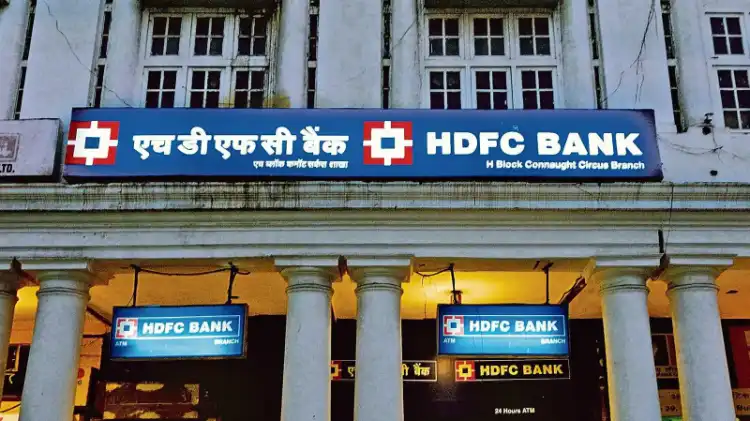
Experience a world of banking convenience with HDFC Bank – Where banking meets technology for a seamless customer journey.
2. HDFC Bank
Housing Development Finance Corporation Limited (HDFC) Bank is one of the leading private sector banks in India, offering a range of financial services to its customers. The bank was established in 1994 and has its headquarters in Mumbai. In this article, we will explore the history of HDFC Bank, its services, and its foreign branches.
History:
HDFC Bank was established in August 1994, after the Reserve Bank of India granted it a banking license. HDFC Bank is part of the Housing Development Finance Corporation (HDFC) group, which is one of India’s largest financial conglomerates. The bank was established with the aim of providing world-class banking services to its customers.
In its early years, HDFC Bank focused on developing a strong retail banking business. The bank offered a range of products and services to customers, including savings accounts, current accounts, personal loans, and credit cards. Over time, HDFC Bank expanded its offerings to include corporate banking, investment banking, and wealth management.
Services:
HDFC Bank is a full-service bank, offering a range of financial products and services to its customers. The bank’s services can be broadly categorized into the following:
- Deposits: HDFC Bank offers a range of deposit products, including savings accounts, current accounts, fixed deposits, and recurring deposits.
- Loans: HDFC Bank provides a variety of loan products, including personal loans, home loans, car loans, education loans, and business loans.
- Cards: HDFC Bank issues credit cards, debit cards, and prepaid cards.
- Investments: HDFC Bank offers investment products such as mutual funds, stocks, bonds, and other securities.
- Insurance: HDFC Bank provides life insurance, health insurance, and other insurance products.
- Mobile banking: HDFC Bank has a mobile banking app that allows customers to access their accounts and perform transactions on the go.
Foreign branches:
HDFC Bank has a network of foreign branches and subsidiaries that provide services to customers across the globe. As of 2021, HDFC Bank has a presence in 10 countries, including the USA, UK, UAE, Bahrain, Hong Kong, and Singapore. Some of the services provided by HDFC Bank’s foreign branches include:
- Trade finance: HDFC Bank’s foreign branches provide trade finance services, including letters of credit, bank guarantees, and documentary collections.
- Remittances: HDFC Bank’s foreign branches provide remittance services to customers, allowing them to transfer money from one country to another.
- NRI services: HDFC Bank’s foreign branches provide specialized services to Non-Resident Indians (NRIs) such as NRI accounts, NRI loans, and NRI remittances.
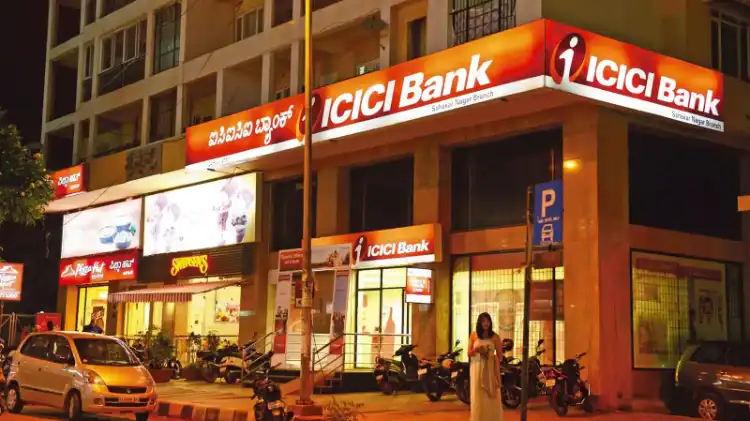
Unleash infinite possibilities with ICICI Bank – Your partner in progress for all your financial needs.
3. ICICI Bank
ICICI Bank is one of India’s largest private sector banks and is known for its innovative financial products and services. The bank was established in 1994 and has its headquarters in Mumbai. In this article, we will explore the history of ICICI Bank, its services, and its foreign branches.
History:
ICICI Bank was established in 1994 after the Industrial Credit and Investment Corporation of India (ICICI) merged with the erstwhile Bank of Madura. The bank’s primary objective was to provide a range of financial services to its customers, including corporate and retail banking, investment banking, and insurance.
ICICI Bank quickly established itself as a leading player in the Indian banking industry. In the early years, the bank focused on developing a strong retail banking business. Over time, the bank expanded its offerings to include corporate banking, investment banking, and wealth management.
Services:
ICICI Bank offers a wide range of financial products and services to its customers. The bank’s services can be broadly categorized into the following:
- Deposits: ICICI Bank offers a range of deposit products, including savings accounts, current accounts, fixed deposits, and recurring deposits.
- Loans: ICICI Bank provides a variety of loan products, including personal loans, home loans, car loans, education loans, and business loans.
- Cards: ICICI Bank issues credit cards, debit cards, and prepaid cards.
- Investments: ICICI Bank offers investment products such as mutual funds, stocks, bonds, and other securities.
- Insurance: ICICI Bank provides life insurance, health insurance, and other insurance products.
- Mobile banking: ICICI Bank has a mobile banking app that allows customers to access their accounts and perform transactions on the go.
Foreign branches:
ICICI Bank has a significant presence in several countries across the world. The bank has subsidiaries, branches, and representative offices in over 20 countries, including the USA, UK, Canada, Australia, Hong Kong, and Singapore. Some of the services provided by ICICI Bank’s foreign branches include:
- Trade finance: ICICI Bank’s foreign branches provide trade finance services, including letters of credit, bank guarantees, and documentary collections.
- Remittances: ICICI Bank’s foreign branches provide remittance services to customers, allowing them to transfer money from one country to another.
- NRI services: ICICI Bank’s foreign branches provide specialized services to Non-Resident Indians (NRIs) such as NRI accounts, NRI loans, and NRI remittances.
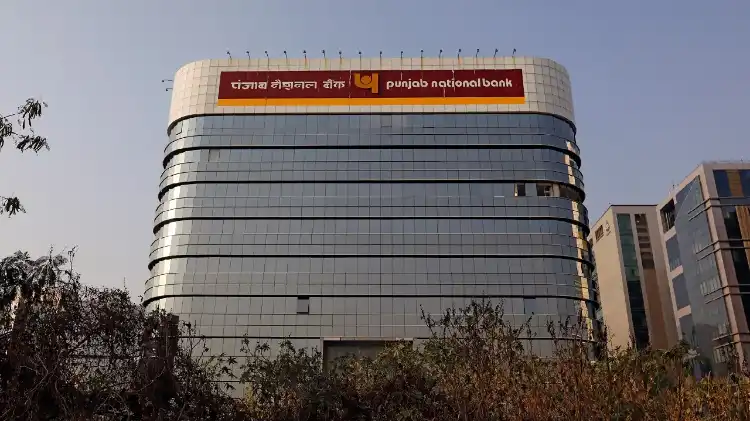
Banking on trust, tradition and technology – Discover a world of financial opportunities with Punjab National Bank.
4. Punjab National Bank (PNB)
Punjab National Bank (PNB) is one of India’s oldest and largest banks. The bank has a rich history dating back to the late 19th century and is known for its focus on customer service and innovative financial products. In this article, we will explore the history of Punjab National Bank, its services, and its foreign branches.
History:
PNB was established in 1894 in Lahore, which was then a part of British India. The bank was founded by a group of businessmen and professionals who were keen to establish a bank that could provide financial services to the common people. PNB was nationalized in 1969, and the government took control of the bank’s operations.
Over the years, PNB has grown to become one of India’s largest banks. The bank has a vast network of branches and ATMs across the country and has expanded its operations to other countries as well.
Services:
PNB offers a wide range of financial products and services to its customers. The bank’s services can be broadly categorized into the following:
- Deposits: PNB offers a range of deposit products, including savings accounts, current accounts, fixed deposits, and recurring deposits.
- Loans: PNB provides a variety of loan products, including personal loans, home loans, car loans, education loans, and business loans.
- Cards: PNB issues credit cards, debit cards, and prepaid cards.
- Investments: PNB offers investment products such as mutual funds, stocks, bonds, and other securities.
- Insurance: PNB provides life insurance, health insurance, and other insurance products.
- Mobile banking: PNB has a mobile banking app that allows customers to access their accounts and perform transactions on the go.
Foreign branches:
PNB has a significant presence in several countries across the world. The bank has subsidiaries, branches, and representative offices in over 10 countries, including the USA, UK, Canada, Australia, Hong Kong, and Dubai. Some of the services provided by PNB’s foreign branches include:
- Trade finance: PNB’s foreign branches provide trade finance services, including letters of credit, bank guarantees, and documentary collections.
- Remittances: PNB’s foreign branches provide remittance services to customers, allowing them to transfer money from one country to another.
- NRI services: PNB’s foreign branches provide specialized services to Non-Resident Indians (NRIs) such as NRI accounts, NRI loans, and NRI remittances.

Empowering your aspirations with world-class banking solutions – Bank of Baroda, India’s international bank.
5. Bank of Baroda (BoB)
Bank of Baroda (BoB) is one of the leading public sector banks in India, with a long and rich history. In this article, we will explore the history of Bank of Baroda (BoB), its services, and its foreign branches.
History:
BoB was founded in 1908 in Baroda (now Vadodara), Gujarat, by Maharaja Sayajirao Gaekwad III. The bank started as a small regional bank, catering to the banking needs of the local community. However, over the years, the bank expanded its operations and grew to become one of the leading banks in India.
In 1969, BoB was nationalized by the government of India, and the bank’s operations were taken over by the Reserve Bank of India. Since then, the bank has expanded its operations and has become a global player in the banking industry.
Services:
BoB provides a wide range of financial products and services to its customers. The bank’s services can be broadly categorized into the following:
- Deposits: BoB offers a range of deposit products, including savings accounts, current accounts, fixed deposits, and recurring deposits.
- Loans: BoB provides a variety of loan products, including personal loans, home loans, car loans, education loans, and business loans.
- Cards: BoB issues credit cards, debit cards, and prepaid cards.
- Investments: BoB offers investment products such as mutual funds, stocks, bonds, and other securities.
- Insurance: BoB provides life insurance, health insurance, and other insurance products.
- Mobile banking: BoB has a mobile banking app that allows customers to access their accounts and perform transactions on the go.
Foreign branches:
BoB has a significant presence in several countries across the world. The bank has subsidiaries, branches, and representative offices in over 25 countries, including the USA, UK, Canada, Australia, Hong Kong, and Dubai. Some of the services provided by BoB’s foreign branches include:
- Trade finance: BoB’s foreign branches provide trade finance services, including letters of credit, bank guarantees, and documentary collections.
- Remittances: BoB’s foreign branches provide remittance services to customers, allowing them to transfer money from one country to another.
- NRI services: BoB’s foreign branches provide specialized services to Non-Resident Indians (NRIs) such as NRI accounts, NRI loans, and NRI remittances.

Growing together, building a better tomorrow – Canara Bank, your partner in progress for all your financial needs.
6. Canara Bank
Canara Bank is one of the oldest and largest public sector banks in India, with a rich history that dates back over a century. In this article, we will explore the history of Canara Bank, its services, and its foreign branches.
History:
Canara Bank was founded in 1906 in Mangalore, Karnataka, by a group of visionaries led by Ammembal Subba Rao Pai. The bank started as a small regional bank, catering to the banking needs of the local community. Over the years, the bank expanded its operations and grew to become one of the leading banks in India.
In 1969, Canara Bank was nationalized by the government of India, and the bank’s operations were taken over by the Reserve Bank of India. Since then, the bank has expanded its operations and has become a global player in the banking industry.
Services:
Canara Bank provides a wide range of financial products and services to its customers. The bank’s services can be broadly categorized into the following:
- Deposits: Canara Bank offers a range of deposit products, including savings accounts, current accounts, fixed deposits, and recurring deposits.
- Loans: Canara Bank provides a variety of loan products, including personal loans, home loans, car loans, education loans, and business loans.
- Cards: Canara Bank issues credit cards, debit cards, and prepaid cards.
- Investments: Canara Bank offers investment products such as mutual funds, stocks, bonds, and other securities.
- Insurance: Canara Bank provides life insurance, health insurance, and other insurance products.
- Mobile banking: Canara Bank has a mobile banking app that allows customers to access their accounts and perform transactions on the go.
Foreign branches:
Canara Bank has a significant presence in several countries across the world. The bank has subsidiaries, branches, and representative offices in over 10 countries, including the USA, UK, Canada, Australia, Hong Kong, and Dubai. Some of the services provided by Canara Bank’s foreign branches include:
- Trade finance: Canara Bank’s foreign branches provide trade finance services, including letters of credit, bank guarantees, and documentary collections.
- Remittances: Canara Bank’s foreign branches provide remittance services to customers, allowing them to transfer money from one country to another.
- NRI services: Canara Bank’s foreign branches provide specialized services to Non-Resident Indians (NRIs) such as NRI accounts, NRI loans, and NRI remittances.

Building a brighter future together – Union Bank of India, where personalized banking meets digital innovation.
7. Union Bank of India
Union Bank of India is one of the leading public sector banks in India, with a rich history that spans over a century. In this article, we will explore the history of Union Bank of India, its services, and its foreign branches. Union Bank of India has been merged with Punjab National Bank.
History:
Union Bank of India was founded in 1919 as the ‘Hindustan Commercial Bank’ in Mumbai, India. The bank later merged with ‘The Union Bank of India Ltd.’ and was renamed as Union Bank of India. The bank’s primary focus during its early years was to provide financial services to the trading community in India.
In 1969, Union Bank of India was nationalized by the government of India, and its operations were taken over by the Reserve Bank of India. Since then, the bank has expanded its operations and has become a leading player in the Indian banking industry.
Services:
Union Bank of India provides a wide range of financial products and services to its customers. The bank’s services can be broadly categorized into the following:
- Deposits: Union Bank of India offers a range of deposit products, including savings accounts, current accounts, fixed deposits, and recurring deposits.
- Loans: Union Bank of India provides a variety of loan products, including personal loans, home loans, car loans, education loans, and business loans.
- Cards: Union Bank of India issues credit cards, debit cards, and prepaid cards.
- Investments: Union Bank of India offers investment products such as mutual funds, stocks, bonds, and other securities.
- Insurance: Union Bank of India provides life insurance, health insurance, and other insurance products.
- Mobile banking: Union Bank of India has a mobile banking app that allows customers to access their accounts and perform transactions on the go.
Foreign branches:
Union Bank of India has a significant presence in several countries across the world. The bank has subsidiaries, branches, and representative offices in over 30 countries, including the USA, UK, Canada, Australia, Hong Kong, and Dubai. Some of the services provided by Union Bank of India’s foreign branches include:
- Trade finance: Union Bank of India’s foreign branches provide trade finance services, including letters of credit, bank guarantees, and documentary collections.
- Remittances: Union Bank of India’s foreign branches provide remittance services to customers, allowing them to transfer money from one country to another.
- NRI services: Union Bank of India’s foreign branches provide specialized services to Non-Resident Indians (NRIs) such as NRI accounts, NRI loans, and NRI remittances.
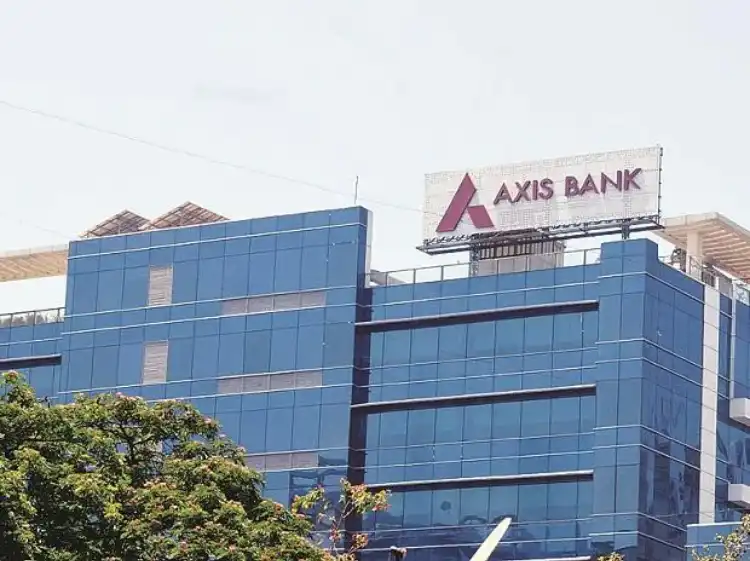
Experience banking that revolves around you – Axis Bank, fostering a culture of innovation and customer-centricity.
8. Axis Bank
Axis Bank is one of the leading private sector banks in India, with a rich history that dates back to 1993. In this article, we will explore the history of Axis Bank, its services, and its foreign branches.
History:
Axis Bank, originally known as UTI Bank, was founded in 1993 as a part of the government’s initiative to encourage private investment in the banking sector. The bank started operations in 1994 with the aim of providing financial services to individuals, businesses, and corporates.
In 2007, UTI Bank was renamed Axis Bank after it acquired the private sector bank, Sangli Bank. Since then, the bank has expanded its operations and has become one of the leading players in the Indian banking industry.
Services:
Axis Bank provides a wide range of financial products and services to its customers. The bank’s services can be broadly categorized into the following:
- Deposits: Axis Bank offers a range of deposit products, including savings accounts, current accounts, fixed deposits, and recurring deposits.
- Loans: Axis Bank provides a variety of loan products, including personal loans, home loans, car loans, education loans, and business loans.
- Cards: Axis Bank issues credit cards, debit cards, and prepaid cards.
- Investments: Axis Bank offers investment products such as mutual funds, stocks, bonds, and other securities.
- Insurance: Axis Bank provides life insurance, health insurance, and other insurance products.
- Mobile banking: Axis Bank has a mobile banking app that allows customers to access their accounts and perform transactions on the go.
Foreign branches:
Axis Bank has a significant presence in several countries across the world. The bank has subsidiaries, branches, and representative offices in over 10 countries, including the USA, UK, Canada, Singapore, Hong Kong, and Dubai. Some of the services provided by Axis Bank’s foreign branches include:
- Trade finance: Axis Bank’s foreign branches provide trade finance services, including letters of credit, bank guarantees, and documentary collections.
- Remittances: Axis Bank’s foreign branches provide remittance services to customers, allowing them to transfer money from one country to another.
- NRI services: Axis Bank’s foreign branches provide specialized services to Non-Resident Indians (NRIs) such as NRI accounts, NRI loans, and NRI remittances.

Your roadmap to financial success – Indian Bank, where tradition meets innovation for all your banking needs.
9. Indian Bank
Indian Bank is a state-owned financial institution that has been a vital player in the Indian banking industry since 1907. In this article, we will explore the history of Indian Bank, its services, and its foreign branches; Allahabad Bank merged with Indian Bank by the government of India.
History:
Indian Bank was established in 1907, with its headquarters located in Chennai, India. Initially, the bank was known as the Indian Banking Corporation and was set up to cater to the needs of the trading community in southern India. The bank grew rapidly and expanded its operations to other parts of the country, becoming one of the largest public sector banks in India.
Over the years, Indian Bank has gone through several mergers and acquisitions. In 1969, the bank was nationalized, and in 2002, it acquired Chennai-based Indbank Merchant Banking Services Ltd, which strengthened its position in the merchant banking segment.
Services:
Indian Bank offers a wide range of financial products and services to its customers. The bank’s services can be broadly categorized into the following:
- Deposits: Indian Bank offers a range of deposit products, including savings accounts, current accounts, fixed deposits, and recurring deposits.
- Loans: Indian Bank provides a variety of loan products, including personal loans, home loans, car loans, education loans, and business loans.
- Cards: Indian Bank issues credit cards, debit cards, and prepaid cards.
- Investments: Indian Bank offers investment products such as mutual funds, stocks, bonds, and other securities.
- Insurance: Indian Bank provides life insurance, health insurance, and other insurance products.
- Mobile banking: Indian Bank has a mobile banking app that allows customers to access their accounts and perform transactions on the go.
Foreign branches:
Indian Bank has a strong presence in several countries across the world. The bank has overseas branches in Colombo, Singapore, and Seoul. The services provided by Indian Bank’s foreign branches include:
- Trade finance: Indian Bank’s foreign branches provide trade finance services, including letters of credit, bank guarantees, and documentary collections.
- Remittances: Indian Bank’s foreign branches provide remittance services to customers, allowing them to transfer money from one country to another.
- NRI services: Indian Bank’s foreign branches provide specialized services to Non-Resident Indians (NRIs) such as NRI accounts, NRI loans, and NRI remittances.
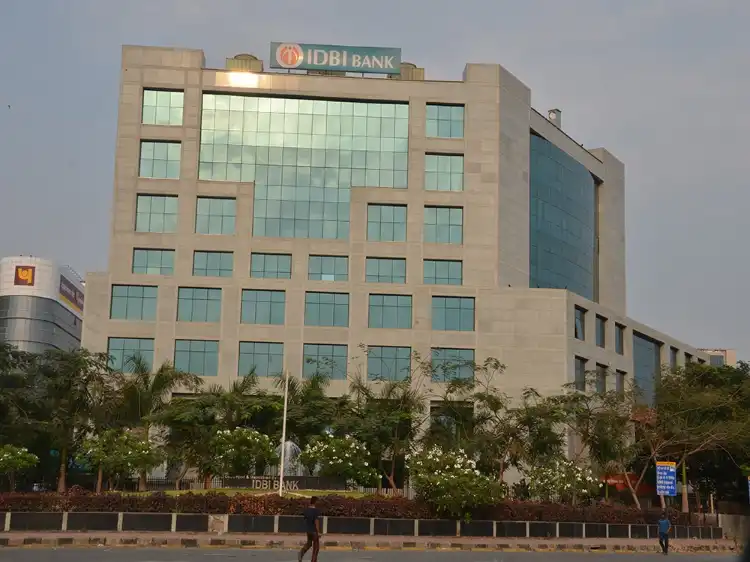
Banking on the go, for the go-getters – IDBI Bank, your partner in progress for a seamless digital banking experience.
10. IDBI Bank
IDBI Bank, short for Industrial Development Bank of India, is a leading public sector bank that was established in 1964. In this article, we will explore the history of IDBI Bank, its services, and its foreign branches.
History:
IDBI Bank was established as a wholly-owned subsidiary of the Reserve Bank of India in 1964, with the aim of promoting industrial development in the country. The bank was initially set up as a Development Financial Institution (DFI) and played a significant role in financing large infrastructure projects in India.
In 2004, IDBI Bank was converted into a commercial bank and began offering retail banking services to the public. The bank’s headquarters are located in Mumbai, and it has a strong presence in both urban and rural areas of India.
Services:
IDBI Bank offers a wide range of financial products and services to its customers. The bank’s services can be broadly categorized into the following:
- Deposits: IDBI Bank offers a range of deposit products, including savings accounts, current accounts, fixed deposits, and recurring deposits.
- Loans: IDBI Bank provides a variety of loan products, including personal loans, home loans, car loans, education loans, and business loans.
- Cards: IDBI Bank issues credit cards, debit cards, and prepaid cards.
- Investments: IDBI Bank offers investment products such as mutual funds, stocks, bonds, and other securities.
- Insurance: IDBI Bank provides life insurance, health insurance, and other insurance products.
- Mobile banking: IDBI Bank has a mobile banking app that allows customers to access their accounts and perform transactions on the go.
Foreign branches:
IDBI Bank has a strong presence in several countries across the world. The bank has overseas branches in Singapore and Dubai. The services provided by IDBI Bank’s foreign branches include:
- Trade finance: IDBI Bank’s foreign branches provide trade finance services, including letters of credit, bank guarantees, and documentary collections.
- Remittances: IDBI Bank’s foreign branches provide remittance services to customers, allowing them to transfer money from one country to another.
- NRI services: IDBI Bank’s foreign branches provide specialized services to Non-Resident Indians (NRIs) such as NRI accounts, NRI loans, and NRI remittances.
IDBI Bank has been a significant player in India’s banking industry, having played a crucial role in promoting industrial development in the country. The bank has been able to adapt to the changing needs of its customers over the years and has a comprehensive range of financial products and services that cater to the needs of both retail and corporate customers.
IDBI Bank’s foreign branches are an essential part of its operations and provide services to customers across the globe. The bank has a strong focus on customer service and has been able to maintain its reputation as a reliable and trustworthy financial institution. With its vast network and strong presence in the country, IDBI Bank continues to be a leading player in the Indian banking industry.
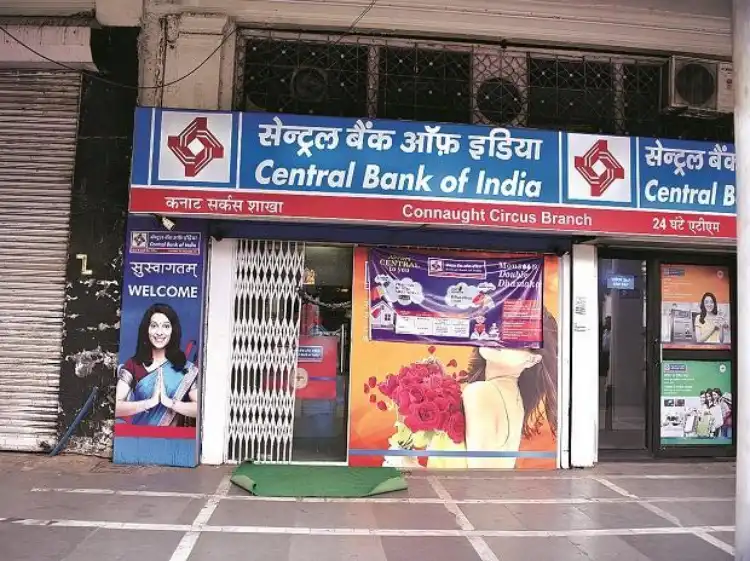
Empowering progress, fostering growth – Central Bank of India, your trusted partner for all your banking needs.
11. Central Bank of India
Central Bank of India is one of the oldest public sector banks in India. In this article, we will discuss the history of Central Bank of India, its services, and its foreign branches.
History:
Central Bank of India was established in 1911 and was the first commercial Indian bank wholly owned and managed by Indians. It was set up in response to the Swadeshi movement, which called for the boycott of British goods and the promotion of Indian-owned businesses.
In the early years, Central Bank of India mainly provided financial services to the textile industry, which was the backbone of the Indian economy at the time. The bank played a crucial role in financing several large textile mills and helped to promote the growth of the industry.
Services:
Central Bank of India offers a range of financial products and services to its customers. The bank’s services can be broadly categorized into the following:
- Deposits: Central Bank of India offers a range of deposit products, including savings accounts, current accounts, fixed deposits, and recurring deposits.
- Loans: Central Bank of India provides a variety of loan products, including personal loans, home loans, car loans, education loans, and business loans.
- Cards: Central Bank of India issues credit cards, debit cards, and prepaid cards.
- Investments: Central Bank of India offers investment products such as mutual funds, stocks, bonds, and other securities.
- Insurance: Central Bank of India provides life insurance, health insurance, and other insurance products.
- Mobile banking: Central Bank of India has a mobile banking app that allows customers to access their accounts and perform transactions on the go.
Foreign branches:
Central Bank of India has a presence in several countries across the world. The bank has overseas branches in Nairobi, Hong Kong, and Singapore. The services provided by Central Bank of India’s foreign branches include:
- Trade finance: Central Bank of India’s foreign branches provide trade finance services, including letters of credit, bank guarantees, and documentary collections.
- Remittances: Central Bank of India’s foreign branches provide remittance services to customers, allowing them to transfer money from one country to another.
- NRI services: Central Bank of India’s foreign branches provide specialized services to Non-Resident Indians (NRIs) such as NRI accounts, NRI loans, and NRI remittances.
Central Bank of India has a rich history and has played a crucial role in the development of India’s economy. The bank has been able to adapt to the changing needs of its customers over the years and has a comprehensive range of financial products and services that cater to the needs of both retail and corporate customers.
Central Bank of India’s foreign branches are an essential part of its operations and provide services to customers across the globe. The bank has a strong focus on customer service and has been able to maintain its reputation as a reliable and trustworthy financial institution. With its vast network and strong presence in the country, Central Bank of India continues to be a leading player in the Indian banking industry.

Banking with a human touch – Bank of India, where innovation and customer-centricity drive financial success.
12. Bank of India (BoI)
Bank of India (BoI) is a public sector bank in India with a long and storied history. In this article, we will discuss the history of Bank of India, its services, and its foreign branches.
History:
Bank of India was founded in 1906 in Mumbai by a group of businessmen. The bank initially operated as a private enterprise before being nationalized in 1969. During the early years, Bank of India primarily provided financial services to the textile industry, which was the backbone of the Indian economy at the time. The bank played a crucial role in financing several large textile mills and helped to promote the growth of the industry.
Over the years, Bank of India has expanded its operations and now has a nationwide network of branches and ATMs. The bank has also established a presence in several other countries around the world.
Services:
Bank of India offers a wide range of financial products and services to its customers. The bank’s services can be broadly categorized into the following:
- Deposits: Bank of India offers a range of deposit products, including savings accounts, current accounts, fixed deposits, and recurring deposits.
- Loans: Bank of India provides a variety of loan products, including personal loans, home loans, car loans, education loans, and business loans.
- Cards: Bank of India issues credit cards, debit cards, and prepaid cards.
- Investments: Bank of India offers investment products such as mutual funds, stocks, bonds, and other securities.
- Insurance: Bank of India provides life insurance, health insurance, and other insurance products.
- Mobile banking: Bank of India has a mobile banking app that allows customers to access their accounts and perform transactions on the go.
Foreign branches:
Bank of India has a presence in several countries across the world. The bank has overseas branches in New York, London, Paris, Tokyo, and several other countries. The services provided by Bank of India’s foreign branches include:
- Trade finance: Bank of India’s foreign branches provide trade finance services, including letters of credit, bank guarantees, and documentary collections.
- Remittances: Bank of India’s foreign branches provide remittance services to customers, allowing them to transfer money from one country to another.
- NRI services: Bank of India’s foreign branches provide specialized services to Non-Resident Indians (NRIs) such as NRI accounts, NRI loans, and NRI remittances.
Bank of India has a long and distinguished history and has played a crucial role in the development of India’s economy. The bank has been able to adapt to the changing needs of its customers over the years and has a comprehensive range of financial products and services that cater to the needs of both retail and corporate customers.
Bank of India’s foreign branches are an important part of its operations and provide services to customers across the globe. The bank has a strong focus on customer service and has been able to maintain its reputation as a reliable and trustworthy financial institution. With its vast network and strong presence in the country, Bank of India continues to be a leading player in the Indian banking industry.

Unleashing the power of digital banking – Kotak Mahindra Bank, where innovation meets convenience for a seamless banking experience.
13. Kotak Mahindra Bank
Kotak Mahindra Bank is a private sector bank in India with a history dating back to 1985. In this article, we will discuss the history of Kotak Mahindra Bank, its services, and its foreign branches.
History:
Kotak Mahindra Bank was founded by Uday Kotak in 1985 as a bill discounting company. The company grew rapidly and expanded into various financial services, including investment banking, stockbroking, and mutual funds. In 2003, Kotak Mahindra Bank was granted a banking license by the Reserve Bank of India and began operations as a commercial bank.
Since then, Kotak Mahindra Bank has grown rapidly and has established a strong presence in the Indian banking industry. The bank has also expanded its operations overseas, with a presence in several countries around the world.
Services:
Kotak Mahindra Bank offers a wide range of financial products and services to its customers. The bank’s services can be broadly categorized into the following:
- Deposits: Kotak Mahindra Bank offers a range of deposit products, including savings accounts, current accounts, fixed deposits, and recurring deposits.
- Loans: Kotak Mahindra Bank provides a variety of loan products, including personal loans, home loans, car loans, education loans, and business loans.
- Cards: Kotak Mahindra Bank issues credit cards, debit cards, and prepaid cards.
- Investments: Kotak Mahindra Bank offers investment products such as mutual funds, stocks, bonds, and other securities.
- Insurance: Kotak Mahindra Bank provides life insurance, health insurance, and other insurance products.
- Mobile banking: Kotak Mahindra Bank has a mobile banking app that allows customers to access their accounts and perform transactions on the go.
Foreign branches:
Kotak Mahindra Bank has a presence in several countries across the world. The bank has overseas branches in Dubai, Abu Dhabi, Bahrain, and several other countries. The services provided by Kotak Mahindra Bank’s foreign branches include:
- Trade finance: Kotak Mahindra Bank’s foreign branches provide trade finance services, including letters of credit, bank guarantees, and documentary collections.
- Remittances: Kotak Mahindra Bank’s foreign branches provide remittance services to customers, allowing them to transfer money from one country to another.
- NRI services: Kotak Mahindra Bank’s foreign branches provide specialized services to Non-Resident Indians (NRIs) such as NRI accounts, NRI loans, and NRI remittances.
Kotak Mahindra Bank has grown rapidly since its inception and has established a strong reputation as a reliable and trustworthy financial institution. The bank has a comprehensive range of financial products and services that cater to the needs of both retail and corporate customers.
Kotak Mahindra Bank’s foreign branches are an important part of its operations and provide services to customers across the globe. The bank has a strong focus on customer service and has been able to maintain its reputation as a leading player in the Indian banking industry. With its vast network and strong presence in the country, Kotak Mahindra Bank continues to be a leading player in the Indian banking industry.

Experience a world of possibilities with Yes Bank – Where banking meets innovation to fuel your financial progress.
14. Yes Bank
Yes Bank is a private sector bank in India that was founded in 2004. In this article, we will discuss the history of Yes Bank, its services, and its foreign branches.
History:
Yes Bank was founded by Rana Kapoor and Ashok Kapur in 2004. The bank received its banking license from the Reserve Bank of India in 2004 and began operations as a commercial bank. The bank’s founders had a vision of creating a world-class bank that would provide top-notch financial services to its customers.
Over the years, Yes Bank has grown rapidly and has established a strong presence in the Indian banking industry. However, the bank has faced several challenges in recent years, including financial mismanagement and regulatory issues.
Services:
Yes Bank offers a wide range of financial products and services to its customers. The bank’s services can be broadly categorized into the following:
- Deposits: Yes Bank offers a range of deposit products, including savings accounts, current accounts, fixed deposits, and recurring deposits.
- Loans: Yes Bank provides a variety of loan products, including personal loans, home loans, car loans, education loans, and business loans.
- Cards: Yes Bank issues credit cards, debit cards, and prepaid cards.
- Investments: Yes Bank offers investment products such as mutual funds, stocks, bonds, and other securities.
- Insurance: Yes Bank provides life insurance, health insurance, and other insurance products.
- Mobile banking: Yes Bank has a mobile banking app that allows customers to access their accounts and perform transactions on the go.
Foreign branches:
Yes Bank has a presence in several countries across the world. The bank has overseas branches in the United Arab Emirates (UAE), Singapore, and the United Kingdom (UK). The services provided by Yes Bank’s foreign branches include:
- Trade finance: Yes Bank’s foreign branches provide trade finance services, including letters of credit, bank guarantees, and documentary collections.
- Remittances: Yes Bank’s foreign branches provide remittance services to customers, allowing them to transfer money from one country to another.
- NRI services: Yes Bank’s foreign branches provide specialized services to Non-Resident Indians (NRIs) such as NRI accounts, NRI loans, and NRI remittances.
Yes Bank has had a tumultuous journey since its inception, but it has established a strong reputation as a reliable and trustworthy financial institution. The bank has a comprehensive range of financial products and services that cater to the needs of both retail and corporate customers.
Yes Bank’s foreign branches are an important part of its operations and provide services to customers across the globe. The bank has a strong focus on customer service and has been able to maintain its reputation as a leading player in the Indian banking industry. With its vast network and strong presence in the country, Yes Bank continues to be a major player in the Indian banking industry.

Banking that pampers you – IndusInd Bank, where luxury and convenience come together for a personalized banking experience.
15. IndusInd Bank
IndusInd Bank is a private sector bank in India that was founded in 1994. In this article, we will discuss the history of IndusInd Bank, its services, and its foreign branches.
History:
IndusInd Bank was founded by Srichand P. Hinduja, a member of the Hinduja family, in 1994. The bank received its banking license from the Reserve Bank of India in 1994 and began operations as a commercial bank.
Over the years, IndusInd Bank has grown rapidly and has established a strong presence in the Indian banking industry. The bank is known for its innovative products and services and has won several awards for its performance.
Services:
IndusInd Bank offers a wide range of financial products and services to its customers. The bank’s services can be broadly categorized into the following:
- Deposits: IndusInd Bank offers a range of deposit products, including savings accounts, current accounts, fixed deposits, and recurring deposits.
- Loans: IndusInd Bank provides a variety of loan products, including personal loans, home loans, car loans, education loans, and business loans.
- Cards: IndusInd Bank issues credit cards, debit cards, and prepaid cards.
- Investments: IndusInd Bank offers investment products such as mutual funds, stocks, bonds, and other securities.
- Insurance: IndusInd Bank provides life insurance, health insurance, and other insurance products.
- Mobile banking: IndusInd Bank has a mobile banking app that allows customers to access their accounts and perform transactions on the go.
Foreign branches:
IndusInd Bank has a presence in several countries across the world. The bank has overseas branches in the United Arab Emirates (UAE), London, and the Mauritius. The services provided by IndusInd Bank’s foreign branches include:
- Trade finance: IndusInd Bank’s foreign branches provide trade finance services, including letters of credit, bank guarantees, and documentary collections.
- Remittances: IndusInd Bank’s foreign branches provide remittance services to customers, allowing them to transfer money from one country to another.
- NRI services: IndusInd Bank’s foreign branches provide specialized services to Non-Resident Indians (NRIs) such as NRI accounts, NRI loans, and NRI remittances.
IndusInd Bank has established a strong reputation as an innovative and customer-focused financial institution. The bank has a comprehensive range of financial products and services that cater to the needs of both retail and corporate customers.
IndusInd Bank’s foreign branches are an important part of its operations and provide services to customers across the globe. The bank has a strong focus on customer service and has been able to maintain its reputation as a leading player in the Indian banking industry. With its vast network and strong presence in the country, IndusInd Bank continues to be a major player in the Indian banking industry.
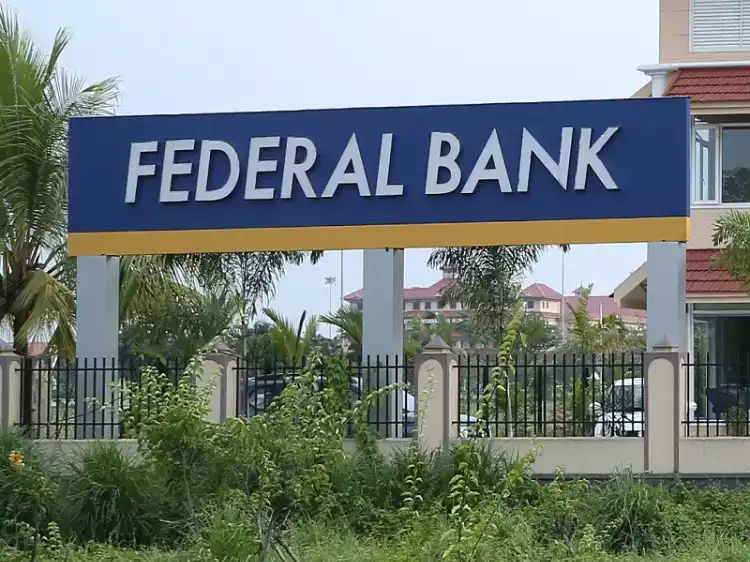
Your partner in progress, your friend in finance – Federal Bank, where personalized banking meets technology for a seamless customer journey.
16. Federal Bank
Federal Bank is a leading private sector bank in India with a long history dating back to 1931. In this article, we will discuss the history of Federal Bank, its services, and its foreign branches.
History:
Federal Bank was founded in 1931 by a group of entrepreneurs in Kerala as the Travancore Federal Bank. In 1949, the bank was renamed as Federal Bank Limited and received its banking license from the Reserve Bank of India.
Over the years, Federal Bank has grown rapidly and has established a strong presence in the Indian banking industry. The bank is known for its innovative products and services and has won several awards for its performance.
Services:
Federal Bank offers a wide range of financial products and services to its customers. The bank’s services can be broadly categorized into the following:
- Deposits: Federal Bank offers a range of deposit products, including savings accounts, current accounts, fixed deposits, and recurring deposits.
- Loans: Federal Bank provides a variety of loan products, including personal loans, home loans, car loans, education loans, and business loans.
- Cards: Federal Bank issues credit cards, debit cards, and prepaid cards.
- Investments: Federal Bank offers investment products such as mutual funds, stocks, bonds, and other securities.
- Insurance: Federal Bank provides life insurance, health insurance, and other insurance products.
- Mobile banking: Federal Bank has a mobile banking app that allows customers to access their accounts and perform transactions on the go.
Foreign branches:
Federal Bank has a presence in several countries across the world. The bank has overseas branches in the United Arab Emirates (UAE), Kuwait, and Oman. The services provided by Federal Bank’s foreign branches include:
- Trade finance: Federal Bank’s foreign branches provide trade finance services, including letters of credit, bank guarantees, and documentary collections.
- Remittances: Federal Bank’s foreign branches provide remittance services to customers, allowing them to transfer money from one country to another.
- NRI services: Federal Bank’s foreign branches provide specialized services to Non-Resident Indians (NRIs) such as NRI accounts, NRI loans, and NRI remittances.
Federal Bank has established a strong reputation as an innovative and customer-focused financial institution. The bank has a comprehensive range of financial products and services that cater to the needs of both retail and corporate customers.
Federal Bank’s foreign branches are an important part of its operations and provide services to customers across the globe. The bank has a strong focus on customer service and has been able to maintain its reputation as a leading player in the Indian banking industry. With its vast network and strong presence in the country, Federal Bank continues to be a major player in the Indian banking industry.
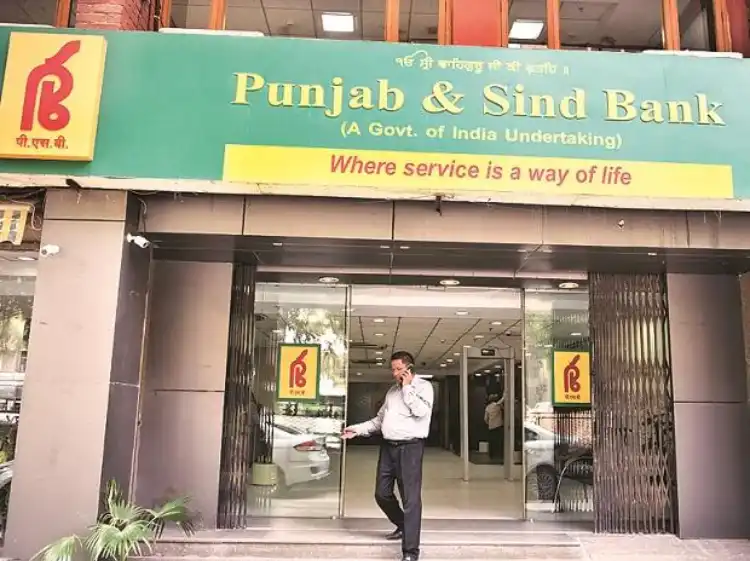
Tradition, trust, and technology – Punjab and Sind Bank, your go-to destination for all your banking needs.
17. Punjab and Sind Bank (PSB)
Punjab and Sind Bank (PSB) is a public sector bank in India with its headquarters in New Delhi. In this article, we will discuss the history of PSB, its services, and its foreign branches.
History:
Punjab and Sind Bank was founded in 1908 in Amritsar, Punjab, by Bhai Vir Singh, a prominent Sikh writer, and philanthropist. The bank was established to serve the financial needs of the local community and to promote economic development in the region.
Over the years, Punjab and Sind Bank has expanded its operations and now has a strong presence in several states in India. The bank has also established a reputation for its commitment to customer service and its focus on social responsibility.
Services:
Punjab and Sind Bank offers a wide range of financial products and services to its customers. The bank’s services can be broadly categorized into the following:
- Deposits: Punjab and Sind Bank offers a range of deposit products, including savings accounts, current accounts, fixed deposits, and recurring deposits.
- Loans: Punjab and Sind Bank provides a variety of loan products, including personal loans, home loans, car loans, education loans, and business loans.
- Cards: Punjab and Sind Bank issues credit cards, debit cards, and prepaid cards.
- Investments: Punjab and Sind Bank offers investment products such as mutual funds, stocks, bonds, and other securities.
- Insurance: Punjab and Sind Bank provides life insurance, health insurance, and other insurance products.
- Mobile banking: Punjab and Sind Bank has a mobile banking app that allows customers to access their accounts and perform transactions on the go.
Foreign branches:
Punjab and Sind Bank currently does not have any foreign branches. However, the bank has a correspondent banking relationship with several banks in other countries, which allows it to provide international remittance services to its customers.
Punjab and Sind Bank has a long history of serving the financial needs of the local community and promoting economic development in the region. The bank has a wide range of financial products and services that cater to the needs of both retail and corporate customers.
Although Punjab and Sind Bank does not have any foreign branches, it has established correspondent banking relationships with several banks in other countries, which allows it to provide international remittance services to its customers. With its commitment to customer service and social responsibility, Punjab and Sind Bank continues to be a major player in the Indian banking industry.
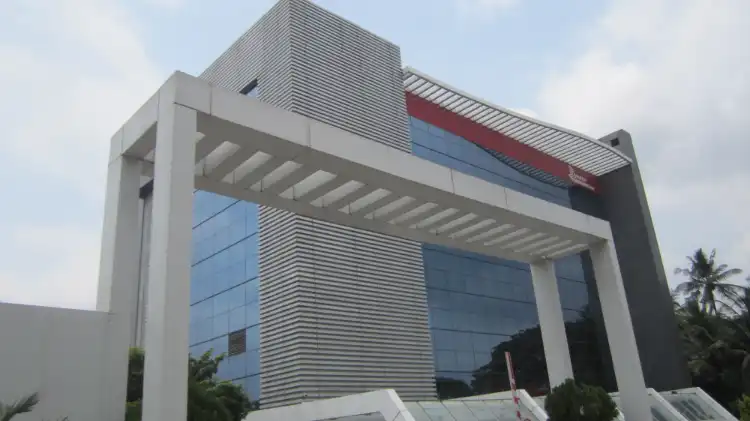
Experience banking with a personal touch – South Indian Bank, where tradition meets innovation for a seamless customer experience.
18. South Indian Bank (SIB)
South Indian Bank (SIB) is a private sector bank in India with its headquarters in Thrissur, Kerala. In this article, we will discuss the history of SIB, its services, and its foreign branches.
History:
South Indian Bank was founded in 1929 as a private limited company by a group of enterprising entrepreneurs from the region of Thrissur, Kerala. The bank was established to provide financial services to the local community and to promote economic development in the region.
Over the years, South Indian Bank has expanded its operations and now has a strong presence in several states in India. The bank has also established a reputation for its commitment to customer service and its focus on social responsibility.
Services:
South Indian Bank offers a wide range of financial products and services to its customers. The bank’s services can be broadly categorized into the following:
- Deposits: South Indian Bank offers a range of deposit products, including savings accounts, current accounts, fixed deposits, and recurring deposits.
- Loans: South Indian Bank provides a variety of loan products, including personal loans, home loans, car loans, education loans, and business loans.
- Cards: South Indian Bank issues credit cards, debit cards, and prepaid cards.
- Investments: South Indian Bank offers investment products such as mutual funds, stocks, bonds, and other securities.
- Insurance: South Indian Bank provides life insurance, health insurance, and other insurance products.
- Mobile banking: South Indian Bank has a mobile banking app that allows customers to access their accounts and perform transactions on the go.
Foreign branches:
South Indian Bank has branches in foreign countries, including the United Arab Emirates (UAE), Bahrain, and the UK. The bank’s international branches offer a range of services, including remittances, foreign currency exchange, and trade finance.
In addition to its international branches, South Indian Bank also has correspondent banking relationships with several banks in other countries. This allows the bank to provide international remittance services to its customers.
South Indian Bank has a long history of serving the financial needs of the local community and promoting economic development in the region. The bank has a wide range of financial products and services that cater to the needs of both retail and corporate customers.
With its international presence in countries like the UAE, Bahrain, and the UK, South Indian Bank is able to offer a range of services to its customers, including remittances and trade finance. Its correspondent banking relationships with other banks also allow it to provide international remittance services.
With its commitment to customer service and social responsibility, South Indian Bank continues to be a major player in the Indian banking industry.

Empowering financial progress for a better tomorrow – Jammu & Kashmir Bank, your trusted banking partner in the valley and beyond.
19. Jammu & Kashmir Bank (J&K Bank)
Jammu & Kashmir Bank (J&K Bank) is a regional bank in India that primarily operates in the northernmost state of Jammu and Kashmir. It was founded in 1938 and has since grown to become one of the leading banks in the region. In this article, we will take a closer look at the history, services, and foreign branches of Jammu & Kashmir Bank.
History:
J&K Bank was incorporated on 1st October 1938 under the Companies Act, 1913, and was subsequently given the status of a Scheduled Bank in 1971. The bank was formed to provide financial assistance to the people of the region who were struggling to get loans from other banks. The bank played a crucial role in the economic development of Jammu and Kashmir, and it quickly became a trusted name among the people.
Services:
J&K Bank offers a range of banking services to its customers, including personal banking, corporate banking, and international banking. The bank has over 1,000 branches across the country, and it offers a range of financial products and services, such as loans, credit cards, debit cards, insurance, and investment services. The bank has also made significant investments in technology to enhance customer experience and provide digital banking solutions.
The bank’s personal banking services include savings accounts, current accounts, fixed deposits, and loans for various purposes such as education, housing, and vehicle purchases. The bank also offers a range of credit cards, including co-branded credit cards with other organizations.
For corporate clients, J&K Bank provides various services such as term loans, working capital finance, project finance, trade finance, and cash management services. The bank also offers customized solutions to cater to the unique needs of each corporate client.
Foreign branches:
J&K Bank has two foreign branches, one in Dubai and one in the UK. The Dubai branch was opened in 2008 to cater to the needs of Non-Resident Indians (NRIs) in the Gulf Cooperation Council (GCC) countries. The UK branch, located in Birmingham, was opened in 2019 to cater to the needs of the Indian diaspora in the UK and Europe. These foreign branches offer a range of services to their customers, such as NRI services, remittances, trade finance, and forex services.
J&K Bank has played a crucial role in the economic development of the Jammu and Kashmir region. The bank has expanded its services to cater to the needs of its customers, and its investments in technology have made banking easier and more convenient for its customers. With its two foreign branches, J&K Bank is well-positioned to serve the needs of NRIs and the Indian diaspora living in the UK and Europe. Overall, J&K Bank has a strong presence in the region and is well-regarded by its customers.
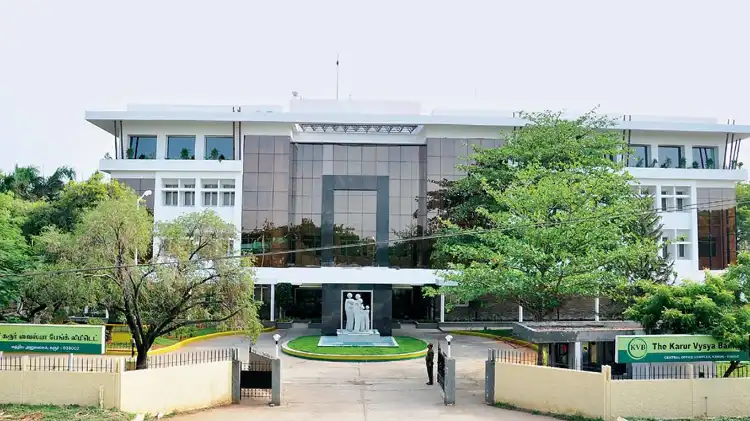
Banking that puts you first – Karur Vysya Bank, where customer satisfaction and innovation drive financial success.
20. Karur Vysya Bank
Karur Vysya Bank (KVB) is a private sector bank in India headquartered in Karur, Tamil Nadu. The bank was founded in 1916 by M.A. Venkatarama Chettiar and it initially operated as a small unit with a single branch. Over the years, KVB has grown in size and today, it operates across India with over 780 branches and ATMs.
History:
Karur Vysya Bank was established in 1916 by M.A. Venkatarama Chettiar and his sons in Karur, a town in Tamil Nadu. The bank started as a small unit with a single branch and focused on providing banking services to the people of Karur. In the 1960s, the bank expanded its operations and opened branches in other parts of Tamil Nadu. The bank was nationalized in 1969, but it continued to operate as a regional bank.
In the 1990s, the bank underwent a transformation under the leadership of its CEO, K. Venkataraman. The bank started to modernize its operations and expanded its reach beyond Tamil Nadu. The bank also introduced new products and services such as internet banking, mobile banking, and credit cards. In 1999, the bank became the first private sector bank in India to launch a credit card.
Services:
Karur Vysya Bank offers a wide range of banking and financial services to its customers. The bank provides personal banking services such as savings and current accounts, loans, credit cards, and insurance products. The bank also offers corporate banking services such as trade finance, working capital finance, and project finance. In addition, the bank provides a range of digital banking services such as internet banking, mobile banking, and online bill payment.
Foreign Branches:
Karur Vysya Bank has a presence in several countries around the world, including the United Arab Emirates (UAE), Hong Kong, and Sri Lanka. The bank has a representative office in Dubai, UAE, which provides banking services to the large Indian expatriate community in the UAE. The bank also has a branch in Hong Kong, which provides trade finance services to customers doing business in Asia. In addition, the bank has a subsidiary in Sri Lanka, called KVB Lanka, which provides a range of banking and financial services to customers in Sri Lanka.
Karur Vysya Bank is one of the oldest private sector banks in India and has a rich history of serving the people of Tamil Nadu. Over the years, the bank has grown in size and expanded its operations to other parts of India and the world. The bank is known for its innovative products and services and its focus on customer service. With its presence in several countries, the bank is well-positioned to serve the needs of its customers around the world.
Exploring the Diversity of Banking in India: An Overview of Leading Banks and Their Services
The article an Overview of Leading Banks and Their Services” provides an in-depth analysis of the leading banks in India, their services, and foreign branches. The article discusses the history, services, and foreign branches of various banks, including State Bank of India (SBI), HDFC Bank, ICICI Bank, Punjab National Bank (PNB), Bank of Baroda (BoB), Canara Bank, Union Bank of India, Axis Bank, Indian Bank, IDBI Bank, Central Bank of India, Bank of India (BoI), Kotak Mahindra Bank, Yes Bank, IndusInd Bank, Federal Bank, Punjab and Sind Bank, South Indian Bank, Jammu & Kashmir Bank, and Karur Vysya Bank.
The article highlights the significance of SBI, which is the largest bank in India, and its vast range of services that cater to the needs of consumers and businesses across the country. HDFC Bank is another significant player in the Indian banking industry, with a focus on digital banking and a diverse range of services, including retail banking, corporate banking, and treasury operations. ICICI Bank is also a leading private sector bank in India, offering a range of services such as investment banking, insurance, and asset management.
The article also covers the services and foreign branches of PNB, which has a strong presence in the North Indian region and offers services such as retail banking, corporate banking, and agricultural banking. Bank of Baroda, which has a significant international presence and operates in 21 countries, is also discussed in the article.
Other banks such as Canara Bank, Union Bank of India, and Central Bank of India have a broad range of services, including retail banking, corporate banking, and international banking operations. Additionally, banks like Axis Bank, IDBI Bank, and Yes Bank are focused on providing specialized services such as investment banking, private banking, and microfinance.
The article also highlights the services and foreign branches of smaller banks such as IndusInd Bank, Federal Bank, Punjab and Sind Bank, South Indian Bank, Jammu & Kashmir Bank, and Karur Vysya Bank. These banks may be smaller in size, but they offer unique and specialized services to their customers.
Overall, the article emphasizes the diversity of the banking industry in India and how each bank plays a unique role in providing financial services to the country’s vast and varied population. The article provides a useful overview of the banking industry in India, highlighting the services and foreign branches of various banks and their significance in the Indian economy.


